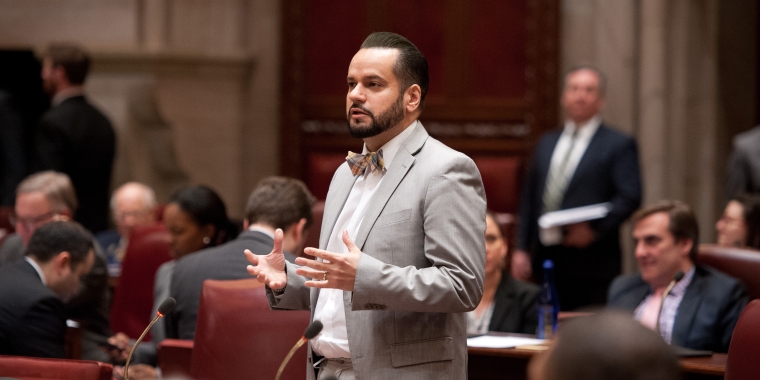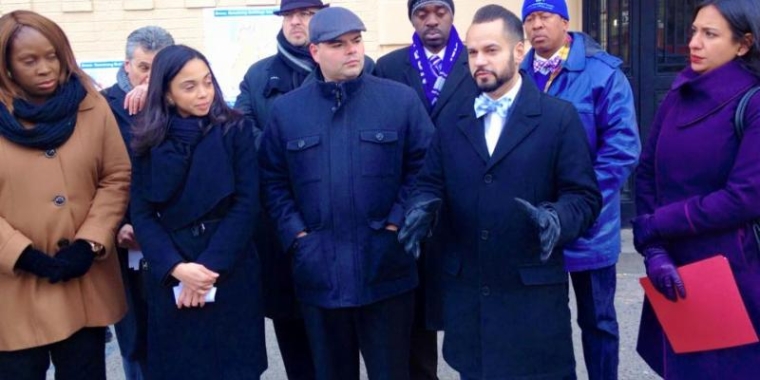
Senator Serrano Sponsors Legislation to Fight Back against the Practice of Forced Arbitration
June 9, 2017
-
ISSUE:
- Justice

Senator Serrano has crafted legislation to end the widespread practice of forced arbitration, which exploits low-income workers and consumers. In forced arbitration, a company requires a worker or consumer to agree to resolve any problem through a binding arbitration process, which means that a dispute must be resolved outside of court. When signing forced arbitration agreements, individuals often waive their rights to sue in court, to participate in class or collective action lawsuits, or to appeal an arbitrator’s decision.
Forced arbitration is often perpetrated through the fine print of employment contracts, orientation materials that workers receive when beginning a new job, or the boilerplate language that consumers either skim or ignore when making purchases. The vast majority of workers and consumers have no idea that they are forced to sign away their rights just to conduct basic business with corporations—for example, to buy products and services from them or to work for them. Senator Serrano’s legislation would make that practice illegal and allow for consumers to take these companies to court when they have been a victim of fraud.
"Too often large companies take advantage of consumers by forcing them into signing 'take-it-or-leave-it' contracts that include hidden clauses requiring forced arbitration that heavily favor businesses. My legislation will create a level playing field and give the power back to the consumers in New York State by allowing them an opportunity to fight back when they are victims of fraud. Many thanks to Assemblymember Kavanagh, Make the Road New York, Citizens Action, and all of the other advocates for helping to lead the way in protecting consumer rights in New York," said Senator Jose M. Serrano.
Share this Article or Press Release
Newsroom
Go to NewsroomAnother Record Year for Our Beloved State Parks
January 28, 2015

Serrano Outlines His Priorities for the 2015 Legislative Session
January 1, 2015

